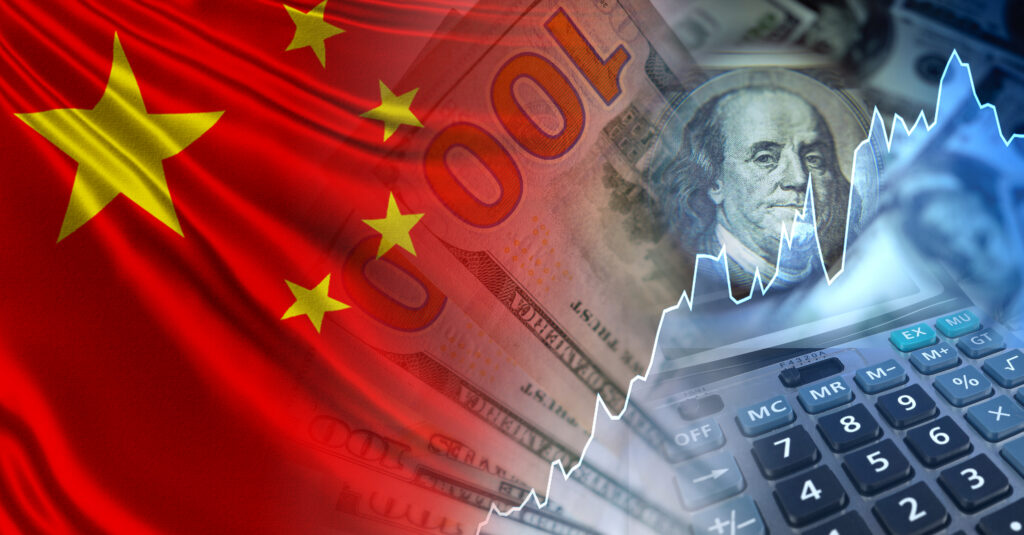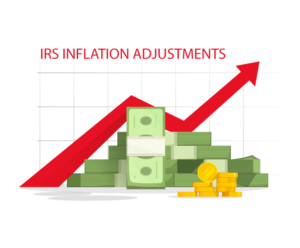China Now World’s Sixth Largest Economy

China Now World’s Sixth Largest Economy
China on Tuesday raised its estimate of the output of the world’s fastest-expanding major economy by a sixth, a revision that leaves growth better balanced but may increase pressure on Beijing to let the yuan rise faster.
The new estimate, based on a vast nationwide census, hoists China above Italy into sixth place in the world economic rankings of 2004 output, measured in dollars at market exchange rates.
What’s more, based on exchange rate movements and relative growth rates in 2005, economists calculate that China by now has risen to fourth place, ahead of France and Britain, and behind only the United States, Japan and Germany.
The National Bureau of Statistics (NBS) said the revision reflected better information on the services sector and on private firms, unearthed during a year-long survey for which the government mobilized 13 million data-gathers — one in every 100 Chinese.
For investors, the bigger economic pie means some ratios that had looked worryingly high, such as investment or bad loans as a share of GDP, now look more sustainable.
“The revised statistics show that China’s economic structure is more reasonable and healthy than the previous figures showed,” Li Deshui, the head of the statistics office, told reporters.
The NBS now estimates that GDP in 2004 totaled 15.99 trillion yuan, 16.8 percent more than its previous estimate.
Using the end-2004 exchange rate of 8.276 yuan per dollar, that comes to $1.93 trillion, compared with $1.67 trillion for Italy, according to World Bank figures.
Fast-growing service industries such as telecommunications, retailing and real estate accounted for 93 percent of the revision and boosted the service sector’s share of economic output in 2004 to 40.7 percent from 31.9 percent.
Industry’s hitherto outsized share of GDP dropped to 46.2 percent from 52.9 percent, while the share taken by farming and fisheries shrank to 13.1 percent from 15.2 percent.
FOREIGN PRESSURE
The changes mean China will need to lean less on ever-faster industrial output, and the ever-rising demand for energy and raw materials it entails, to sustain the 9 percent-plus GDP growth rates of the past three years.
“Given that the size of the services sector is much bigger than initially estimated, the sustainability of growth in China is much better than many people thought,” said Frank Gong, chief economist at JPMorgan Chase in Hong Kong.
Because policy makers now know that growth is less reliant on export-orientated industries, they could be more relaxed about letting the yuan rise, which would favor consumption and services growth, Gong said.
“It will ease further some of the concerns within China on a strong yuan,” he said.
Jim Walker with brokers CLSA in Hong Kong said the fact that China is now almost certainly the fourth-biggest economy could raise hackles in Washington, where U.S. Senator Charles Schumer is threatening to reintroduce a bill that would impose a 27.5 percent tariff on Chinese imports unless the yuan is revalued.
“This gives him much much more ammunition,” Walker said.
Big revisions to GDP are not uncommon, even among countries with sophisticated data-gathering systems.
Misha Belkindas with the World Bank’s development data group said Indonesia revised up its GDP 17 percent in 2004, Italy by more than 17 percent in 1987 and Norway by 11 percent in 1995.
Still, Jun Ma with Deutsche Bank in Hong Kong agreed that a larger GDP could lead to more foreign pressure on China to act as “a more responsible” large nation by letting the yuan rise.
Since it was revalued by 2.1 percent in July and depegged from the dollar, the yuan has risen just a further 0.49 percent against the U.S. currency.
The share of Chinese exports in GDP has now fallen to 29 percent from 34 percent, so the revisions could ease policy maker concerns that a rapid rise in the yuan, also known as the renminbi, would sap growth and increase unemployment, Ma said.
“This suggests that further flexibility of the renminbi may not be viewed as dangerous as before in terms of its impact on the overall economy,” he said.
—————————————————————————————————————————————————————————————————————
We hope you found this article about “China Now World’s Sixth Largest Economy” helpful. If you have questions or need expert tax or family office advice that’s refreshingly objective (we never sell investments), please contact us or visit our Family office page or our website at www.GROCO.com. Unfortunately, we no longer give advice to other tax professionals gratis.
To receive our free newsletter, contact us here.
Subscribe our YouTube Channel for more updates.

Alan Olsen, is the Host of the American Dreams Show and the Managing Partner of GROCO.com. GROCO is a premier family office and tax advisory firm located in the San Francisco Bay area serving clients all over the world.
Alan L. Olsen, CPA, Wikipedia Bio

GROCO.com is a proud sponsor of The American Dreams Show.

The American Dreams show was the brainchild of Alan Olsen, CPA, MBA. It was originally created to fill a specific need; often inexperienced entrepreneurs lacked basic information about raising capital and how to successfully start a business.
Alan sincerely wanted to respond to the many requests from aspiring entrepreneurs asking for the information and introductions they needed. But he had to find a way to help in which his venture capital clients and friends would not mind.
The American Dreams show became the solution, first as a radio show and now with YouTube videos as well. Always respectful of interview guest’s time, he’s able to give access to individuals information and inspiration previously inaccessible to the first-time entrepreneurs who need it most.
They can listen to venture capitalists and successful business people explain first-hand, how they got to where they are, how to start a company, how to overcome challenges, how they see the future evolving, opportunities, work-life balance and so much more..
American Dreams discusses many topics from some of the world’s most successful individuals about their secrets to life’s success. Topics from guest have included:
Creating purpose in life / Building a foundation for their life / Solving problems / Finding fulfillment through philanthropy and service / Becoming self-reliant / Enhancing effective leadership / Balancing family and work…

MyPaths.com (Also sponsored by GROCO) provides free access to content and world-class entrepreneurs, influencers and thought leaders’ personal success stories. To help you find your path in life to true, sustainable success & happiness. It’s mission statement:
In an increasingly complex and difficult world, we hope to help you find your personal path in life and build a strong foundation by learning how others found success and happiness. True and sustainable success and happiness are different for each one of us but possible, often despite significant challenges.
Our mission at MyPaths.com is to provide resources and firsthand accounts of how others found their paths in life, so you can do the same.
Tax Tips for Entrepreneurs
If you’re looking to start a new company in the coming year then you certainly have a lot on your mind, not the least of which is how you will get started, what will you do to market your company and what are your chances of achieving success. The concerns and issues are endless…
IRS Announces New Inflation Adjustments for 2017
While the 2016 tax year is still not quite over, the IRS has already announced some important inflation adjustments for the 2017 tax year, which taxpayers will file for in 2018. While you might be more worried about your upcoming tax return, there are some important changes to know about. However, that being said,…
IRS Changes Deadlines for 1099 Forms
It’s almost January. Are you ready for taxes? Of course, Form 1099s are an important part of any tax season, and this coming year will be no different. As a taxpayer, if you receive any kind of Form 1099 don’t ignore it. The IRS will get the same form and you will be held…
Which Stocks Stand to Gain From Trump Victory?
Which Stocks Stand to Gain From Trump Victory? News of Donald Trump’s victory on November 8th sent shockwaves around the world and initially sent the stock market down. However, the market has since stabilized and reports of a major decline have not panned out. Of course, the stock market is in constant flux and things…




